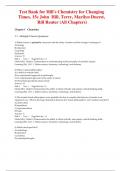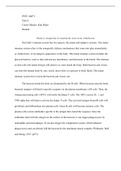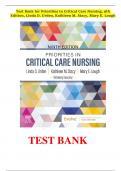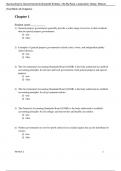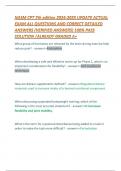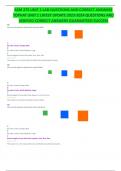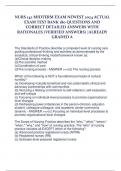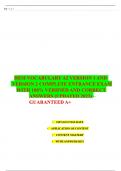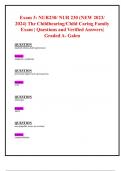Examen
Test Bank for Hill's Chemistry for Changing Times, 15th Edition By John Hill, Terry, Marilyn Duerst, Rill Reuter |All Chapters | Latest Complete Guide A+
- Cours
- Établissement
Test Bank for Hill's Chemistry for Changing Times, 15th Edition By John Hill, Terry, Marilyn Duerst, Rill Reuter |All Chapters | Latest Complete Guide A+ Test Bank for Hill's Chemistry for Changing Times, 15e John Hill, Terry, Marilyn Duerst, Rill Reuter (All Chapters) Chapter 1 Chemistry 1.1...
[Montrer plus]
